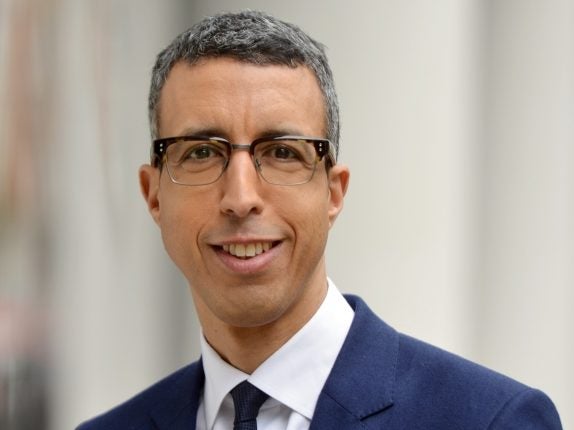
The BBC’s incoming editorial director has said the corporation needs to examine “how we do news” after admitting younger audiences do not engage with traditional bulletin news packages.
Economics editor Kamal Ahmed, who will join the BBC management team in the autumn, told the Edinburgh International Book Festival that the corporation would need to be clear about what it is “trying to do for our audiences” before its centenary anniversary in 2022.
“Our younger audiences are not watching linear news,” he said at the event on Sunday. “It doesn’t mean they’re not watching news or are not engaged in news.
“They’re just not engaged with the idea of sitting down at 10 o’clock and watching 34 minutes of news as packaged up by the BBC – even my daughter doesn’t bother doing that.”
The point of the newly-created editorial director role, Ahmed said, is to “view not only how we cover issues like the economy and Brexit, but also how people really look at the BBC and how we do news”.
Any changes in the corporation’s approach over issues including so-called “fake news” and impartiality would require “quite a lot of thinking” and would need to be made clear ahead of its centenary, Ahmed was reported by the festival’s own in-house journalist as saying.
“We’ll want to be in a position where we are clear about what it is we’re trying to do for our audiences, and the way in which we do it,” he said.
“But also [it’s about] how we deal with things our audience think are important, which is frankly things like health, what we call ‘cost of living’, the economy, the environment, technology, artificial intelligence—those big ticket, big trend, big change issues.
“The idea is to try to bring a bit of coherence to some of that BBC output.”
The BBC has previously received criticism for the frequency with which UKIP political party representatives have appeared on its programme and the presence of climate change sceptic Lord Lawson in debates on the Today programme, as well as its Brexit coverage.
Last month columnist Nick Cohen accused the corporation’s “celebrity presenters” of failing to ask the “hard questions” of the Leave campaign, adding: “The BBC’s reporting of the scandals around the Brexit referendum is not biased or unbalanced: it barely exists.”
In response, James Stephenson, news editor at BBC News, wrote a letter saying the BBC had “reported on every aspect of the [Brexit] story over the past two years”.
“This is not an organisation frightened of journalism, but committed to it,” he added.
Ahmed said on Sunday that the BBC needs to be non-partisan and “equally punctilious” to both sides when reporting on major issues including Brexit, immigration and austerity.
“The test for the BBC is to ensure that, when there are arguments that are seen to come from one side of a debate or another, that we are equally punctilious in making judgements about what the people need to know,” he said.
“You go to the evidence and you ensure that you set a similar test for the other side of the debate.”
But Ahmed said he does not agree with the suggestion that by receiving complaints from both sides of a debate the BBC must be getting things right.
“I get complaints from all sides all the time – often incredibly aggressively,” he said. “Nevertheless, some of those complaints might well hold some water.”
Picture: BBC
Email pged@pressgazette.co.uk to point out mistakes, provide story tips or send in a letter for publication on our "Letters Page" blog
